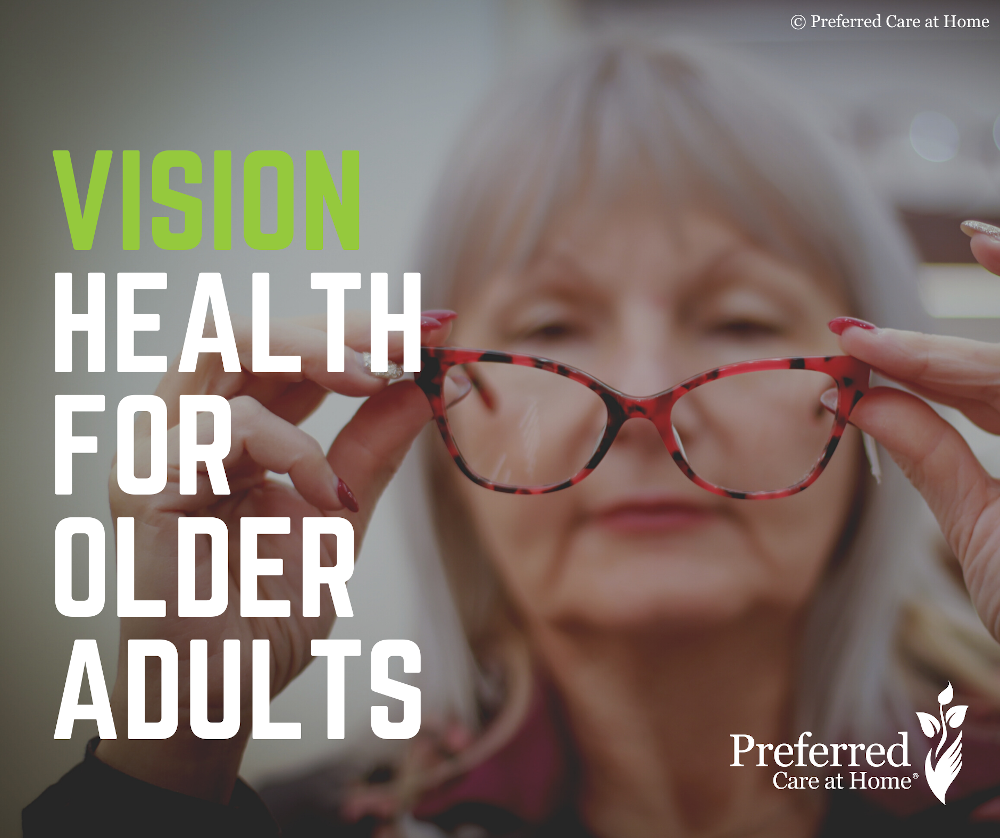The Importance of Vision Health for Older Adults
Published July 23, 2021 by R. Bradley Robinson, M.D. in Senior Health & Wellness

I’ve previously written about the importance of vision health, especially when it comes to eye diseases such as glaucoma that can benefit from early diagnosis and treatment. Because vision is so important for a high quality of life as seniors age, let’s take a closer look at some key points about vision and what seniors can do to maintain healthy eyesight.
What are some causes of age-related eye disease?
There are a variety of eye diseases that can lead to vision loss in older adults, and the treatment varies for each. Here are some important causes listed below:
Cataracts: This is loss of vision secondary to the lens of the eye becoming cloudy. Fortunately, this is usually correctable by surgery, which is a very commonly performed procedure with good outcomes.
Age-Related Macular Degeneration: this affects the central part of the retina, leading to central vision loss. This disease makes it hard to see fine details therefore activities such as reading or watching TV may become difficult.
Diabetic Retinopathy: In individuals with diabetes, high blood sugar levels can lead to damage of the small blood vessels of the eye. At it’s worst, diabetic retinopathy can lead to blindness. This complication is one of the reasons why proper control of one’s blood sugar levels is paramount.
Glaucoma: Various types of glaucoma lead to damage of the optic nerve, which impairs peripheral vision and leads to progressive tunnel vision.
What can I do to care for my eyes and maintain vision health?
In some ways, keeping your eyes healthy is similar to improving your overall health. Eating a healthy diet, stopping smoking, and keeping blood sugar levels under control (for those with diabetes) are all good ways to support healthy vision. You can protect your eyes from direct sun by using sunglasses when outdoors. Additionally, it is important to schedule regular eye examinations to screen for any potential eye disease.
How often should I get an eye exam?
If you are currently dealing with eye disease or vision impairment, it’s important to follow the advice of your eye doctor. For others without any active eye problems, the American Academy of Ophthalmology recommends a complete eye examination every 1-2 years for individuals age 65 and older.
For those with vision impairment, it’s important to stay safe by assessing your home and removing potential tripping hazards. Another key component of safety relates to driving an automobile. If you are dealing with vision impairment, it’s best to have a loved one drive you to the appointment to fully evaluate your vision. If needed, you can contact one of our locations to see how a Preferred Care at Home caregiver can provide safe and reliable transportation and accompany you to any appointments. Your eye doctor can discuss his or her recommendations with you, and can answer any questions you may have about your vision.
If you have questions about senior home
care services or if you want to start care:
Related Posts

January 27, 2025
Is There a Food Allowance Card for Seniors?
Jody Guerrieri, RN.

January 27, 2025
What Causes Glassy Eyes in the Elderly?
Jody Guerrieri, RN.

January 27, 2025
What Age Is Considered a Senior Citizen?
Jody Guerrieri, RN.
Helping seniors age in place, with dignity & grace.